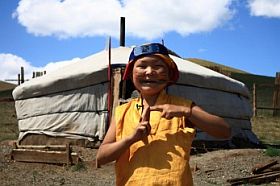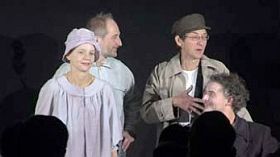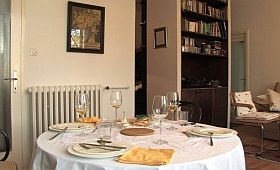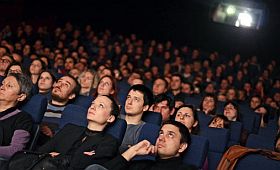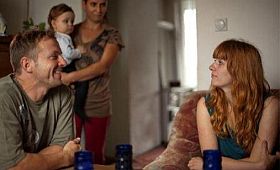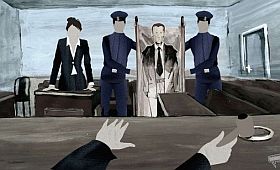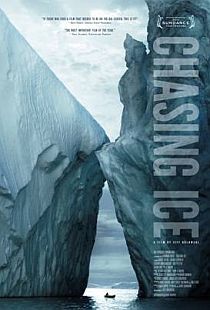Of course ZagrebDox also has an industry section including a training workshop for 12 projects and a connected, public pitching session with 9 panelists. It took place March 1 in one of the cinemas in the Movieplex and attracted a good number of observers in the audience. To make a pitching session in a cinema is good for the trailers that are shown on a big screen, but problematic for the audience and the participants, as the pitchers were standing in half darkness, the same goes for the panelists seated in front of the screen, they were easy to hear, difficult to see.
The panel consisted of representatives from RTV Slovenia, MDR Germany, Al Jazeera Balkan, FTV BiH (Bosnia), YLE Finland, HRT Croatia, Croatian Audiovisual Centre, Taskovski Films, NOVA TV Croatia.
The 12 projects that came up for discussion were from the region, 5 of them from the hosting country. Two of the projects had been pitched at ZagrebDox before – Macedonian ”I’m Looking for a Bride” by Marja Dzidzeva and ”Vitic Dances” by Boris Bakal, about a famous house in Zagreb (built by Vitic) and its inhabitants and their fight to keep the house in good shape, and their fight with each other. Having this second chance shows either that the films have huge problems in getting funding and/or that the filmmakers have developed their stories and are stubborn and passionate people, as documentarians should be.
Two projects stood out, the rest being a bit mainstream or still weak in development. ”Birthday” (photo), however, came out of necessity. The producer Mina Vidakovic, a journalist, who works in den Haag reporting on the war tribunals, is also one of the two characters in the film. In 1992 she was celebrating her birthday 300 kilometer away from the house, where a kid survived while the rest of his family was killed by a paramilitary group. In the clip that was shown you see her meet the man at the place of the massacre. The idea is to show him and his son, and her life today after 20 years. Estimated duration is 28 mins. ”A story that needs to be told, where the inspiration comes to you, and not the other way around”, said Namik Kabil from Bosnian television. Kabil was by far the most remarkable panelist with his constructive and intelligent comments to the filmmakers.
The local production company Fade in, celebrated through a retrospective at the festival, pitched ”Sick”, a 52 mins. extremely strong and complex story that has been filmed over a period of years – about Ana, who was placed at a mental institution to be treated for her homosexuality (!), and who is now obsessed by the wish for revenge. 75% of the film is shot, I sense an important film coming up in a region where homophobia is very much present.
www.zagrebdox.net



